2024-2025 Lecture Series
Fall Flannery Lecture Series with Cathleen Kaveny, Ph.D.
Thursday, October 3, 2024
4:30-6 pm Hemmingson Ballroom

Professor Kaveny will explore and critique the pervasiveness of nostalgia in the American context. She will trace its connections to a problematic conception of nationalism that threatens to divide and diminish Americans rather than unite and strengthen us.
2023-2024 Lecture Series
Spring Flannery Lecture Series: Guadalupe, Mestizaje, and Las Castas by Nancy Pineda-Madrid, Ph.D.
Monday, February 12, 2024
4:30-6 pm Cataldo Globe Room
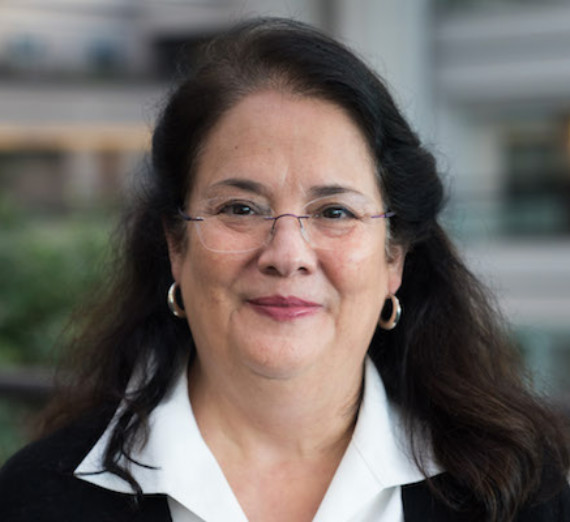
This lecture will interrogate the interpretation of Our Lady of Guadalupe (1) in relation to the notion of “mestizaje,” the mixing of the Spanish and Indigenous blood lines, and (2) in relation to the well-known 1750 painting, Castas, by Luis de Mena, among the many other paintings delineating and ordering las castas. In these paintings, Guadalupe appears to give her blessing to various forms of intermarriage and to a racially based hierarchical ranking of intermarriages. These paintings and how they were used require an analysis and critique in a theological key. Because Guadalupe is a theological symbol, this symbol must be interpreted in a manner that mediates and affirms the that all human beings are fully imago dei.
About the Spring 2024 Flannery Lecturer
Nancy Pineda-Madrid is the T. Marie Chilton Chair of Catholic Theology at Loyola Marymount University and President-Elect of the Catholic Theological Society of America. Previously, she was Associate Professor of Theology and Latina/o Ministry at Boston College (2005-2019). She holds a Ph.D. in Systematic and Philosophical Theology from the Graduate Theological Union (Berkeley, California), and a M.Div. degree from Seattle University. She is the first theologian to publish a book on the evil of feminicide arguing that this tragedy demands a fresh interpretation of what salvation means in her Suffering and Salvation in Ciudad Juárez (Fortress Press, 2011), a reflection she has deepened in her recent Theologizing in an Insurgent Key: Violence, Women, Salvation (Paulist Press, 2022). She has published numerous articles addressing questions of salvation, suffering, religious symbols, popular Catholicism, and Latina feminist theology.
Fall Flannery Lecture Series: Should Christians Forgive the Church for Clerical Sexual Abuse?
Monday, October 16, 2023
4:30-6 pm Cataldo Globe Room

Catholics who love the church might want to forgive the church for its terrible history of clerical abuse, but should we? To answer this question, we need to distinguish the wrongdoing of particular clerics (both abusers and their enablers) from the injustice perpetrated by the institution as a whole (particularly in the culture and structures of clericalism). Repentance is not simply contrition, but a whole process through which the wrongdoer expresses remorse, expresses an apology, makes amends for the damage that has been caused, and undertakes a commitment to personal reform. If we are convinced the church has not adequately fulfilled these requirements, how are we called to respond?
About the Fall 2023 Flannery Lecturer
Stephen J. Pope, Ph.D. (GU Class of 1977) is a Professor in the Department of Theology at Boston College, where he teaches courses on social justice, the virtues, and the intersection of science and theology. He received his B.A. in philosophy from Gonzaga University and his M.A. and Ph.D. in theological ethics from the University of Chicago. His publications include The Ethics of Aquinas (editor, Georgetown University Press, 2002), Human Evolution and Christian Ethics (Cambridge University Press, 2007), and A Step Along the Way: Models of Christian Service (Orbis, 2015). He is currently working on a book project entitled, God’s Love and Ours: A Christian Ethic of Forgiveness. He has worked for over ten years as a volunteer for Catholic chaplaincies in several Massachusetts prisons, and presented in a variety of workshops focused on the contribution of faith communities to restorative justice and political reconciliation for Catholic Relief Services and the Jesuit Refugee Service.
2022-2023 Flannery Lectures
Flannery Lecture Series: Theology from a Place of Wounds: Lessons from the Mirror Church in Rwanda
Download the event flyer.
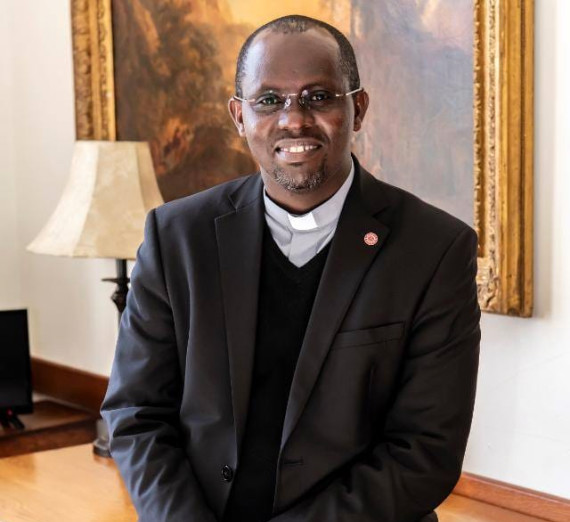
Marcel Uwineza, S.J. (Ph.D. Systematic Theology, Boston College) is Principle at Hekima University College, Nairobi, Kenya. He is author of Risen from the Ashes (2022), Healing a Wounded People (2023) and co-editor of Reinventing Theology in Post Genocide Rwanda (2023). In 2019 he addressed the United Nations General Assembly. This event was held Tuesday, April 4, 2023 via Zoom.
Flannery Lecture Series: Synodality and the New Media
Download the event flyer.
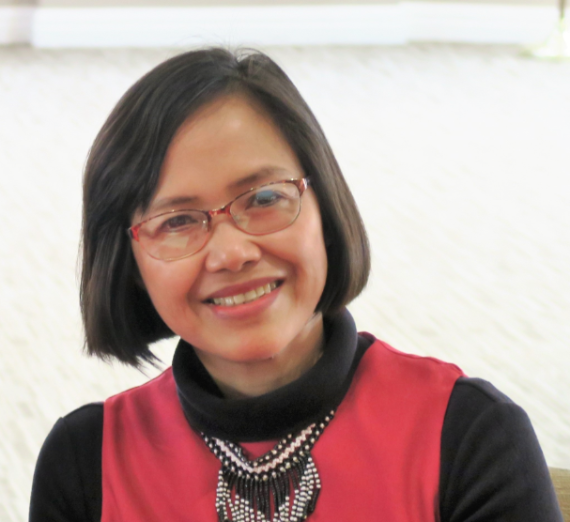
Dr. Agnes Brazal (Philippines) explores how Pope Francis enhances the concept of synodality to involve “especially those on the periphery who are often excluded and forgotten” and even those who have left the church. This thrust toward maximum participation and inclusion illuminates theological differences and conflicts within the church. This lecture explores how the use of new media, following the vTaiwan model, can be a means to go beyond an impasse and discern the consensus fidelium. This event was held Monday, March 20, 2023 at 4:30 pm in the Hemmingson Ballroom.
Fall 2021 —Challenges in Catholic Identity
Download the event flyer.
Panelists:
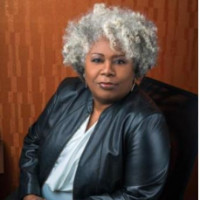
Anthea Butler, University of Pennsylvania
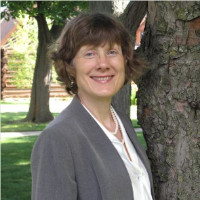
Cristina Traina, Fordham University
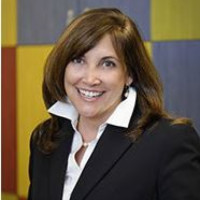
Stacie LeBlanc, President of the American Professional Society on the Abuse of Children
Spring 2021 — COVID-19: Perspectives from Theology, Bioethics, and Population Health
Download the event flyer.
Panelists:

Aline Kalbian, Professor of Religion, Florida State University
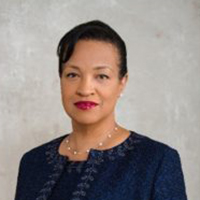
Rhonda M. Medows, President, Population Health Management, Providence
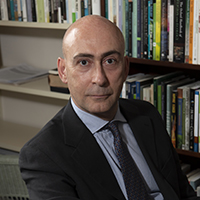
Andrea Vicini, S.J., Michael P. Walsh Professor of Bioethics, Boston College
Fall 2020 — Perspectives from Public Health & Theology: COVID-19
Download the event flyer.
Panelists:
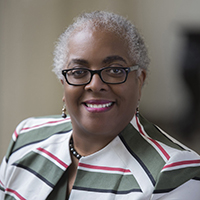
Shawnee M. Daniels-Sykes, R.N., Ph.D., Professor of Theology, Mount Mary University
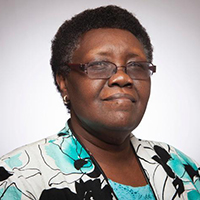
Teresia Hinga, Ph.D., Associate Professor of Religious Studies, Santa Clara University
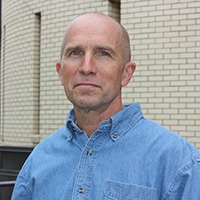
Bob Lutz, M.D., MPH, Health Officer, Spokane Regional Health District
Spring 2020 — Dr. Jennifer Beste
Envisioning a Just Response to the Catholic Clergy Abuse Crisis
In this lecture, Dr. Beste argues that Catholic communities seeking justice and healing must prioritize action on three issues that remain overlooked. First, as a body of Christ, we have not yet fully understood and acknowledged the severe traumatic effects of clergy sexual abuse on youths’ sense of self, their capacity for freedom, and their capacity to relate constructively to God, others, and themselves. Second, recognizing the ways in which survivors continue to suffer from traumatization, we need to forge an authentic way of being in solidarity with clergy sexual abuse survivors and supporting them in their pursuit of justice and healing. Third, we need to examine how Catholic assumptions about children and norms requiring children’s passivity and obedience contributed to the phenomenon of clergy sexual abuse. We need to develop a revised account of what constitutes justice for children.
Fall 2019 — Fr. Tom Doyle
What the Sexual Abuse Phenomenon has Done to the Catholic Church
Spring 2019 — Dr. Maureen H. O'Connell, Associate Professor of Theological Ethics La Salle University
From the Upper Room to Pentecost: Toward an Ethic of Racial Mercy (No print flyer available)
The experiences of White Christians in the United States right now when it comes to crises and conflicts around racialized inequality are akin to that of Jesus’ disciples who locked themselves away in the upper room in the dark days between the Crucifixion and the Resurrection. Many of us desire to be followers of Christ, but are trapped by emotions of fear, shame, guilt, frustration, and anger. Like them, if we desire to cross the threshold of that confining space and move toward the empowering – and multicultural - event of Pentecost, we need to be transformed by God’s mercy. In this presentation, I suggest that before White Christians engage in racial justice movements we must first seek racial mercy. I’ll turn to wisdom I’ve discovered from exploring my own family history with the color line to explain my concerns about racial justice without racial mercy and offer some personal and collective practices for racial mercy itself that might help us show up as more whole people in that critical work.
Fall 2018 — Dr. Andrew Prevot
Cultivating Civic Kinship: A Christian Ethic of Immigration (No print flyer available)
Spring 2018 — Dr. Kristin Heyer, Professor for Theological Studies, Boston College
Cultivating Civic Kinship: A Christian Ethic of Immigration (No print flyer available)
Fall 2017 — Fr. Daniel Groody, C.S.C., Ph.D.
Passing Over: Migration, Theology and the Eucharist
Spring 2017 — Dr. Patrick McCormick
American Religious Violence: Examining the Beam in Our National Eye
Fall 2016 — Dr. Amy Levad
Spring 2016 — Dr. John Haught
Science, Theology, and Pope Francis's Ecological Vision
Fall 2015 — Sr. Ilia Delio
Evolution and the Power of Love: Towards a Holistic Consciousness
Spring 2015 — Dr. Jaennine Hill Fletcher
Love in a Weighted World: The Broken Heart of Catholic Identity
2014 — Dr. M. Shawn Copeland
Toward a Mystical-Political Theology of Solidarity
2012 — Rev. Brian Massingale
Cultured Indifference: The Culture of Racism and Catholic Ethical Reflection
2011 — Mary Catherine Hilkert, O.P
The Hint Half-Guessed: Human Life as a Sacrament
2010 — Dr. Luke Timothy Johnson
Empty Religion: Islam and Christianity's Common Peril
2009 — Dr. Peter C. Phan
Forming Catholic Identity in an Age of Religious Pluralism
